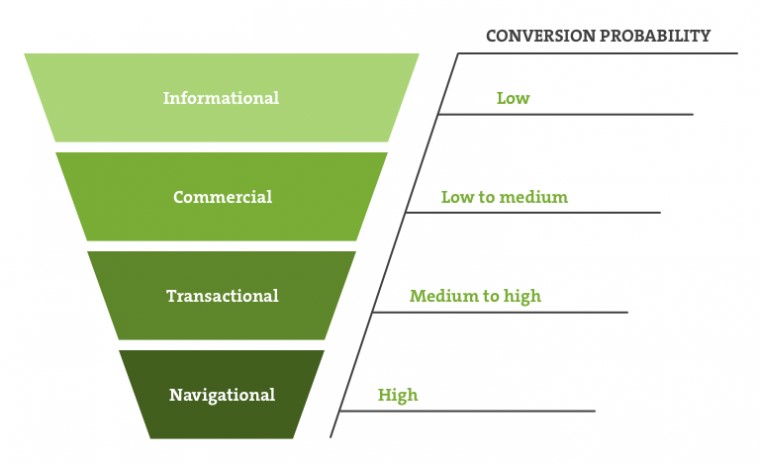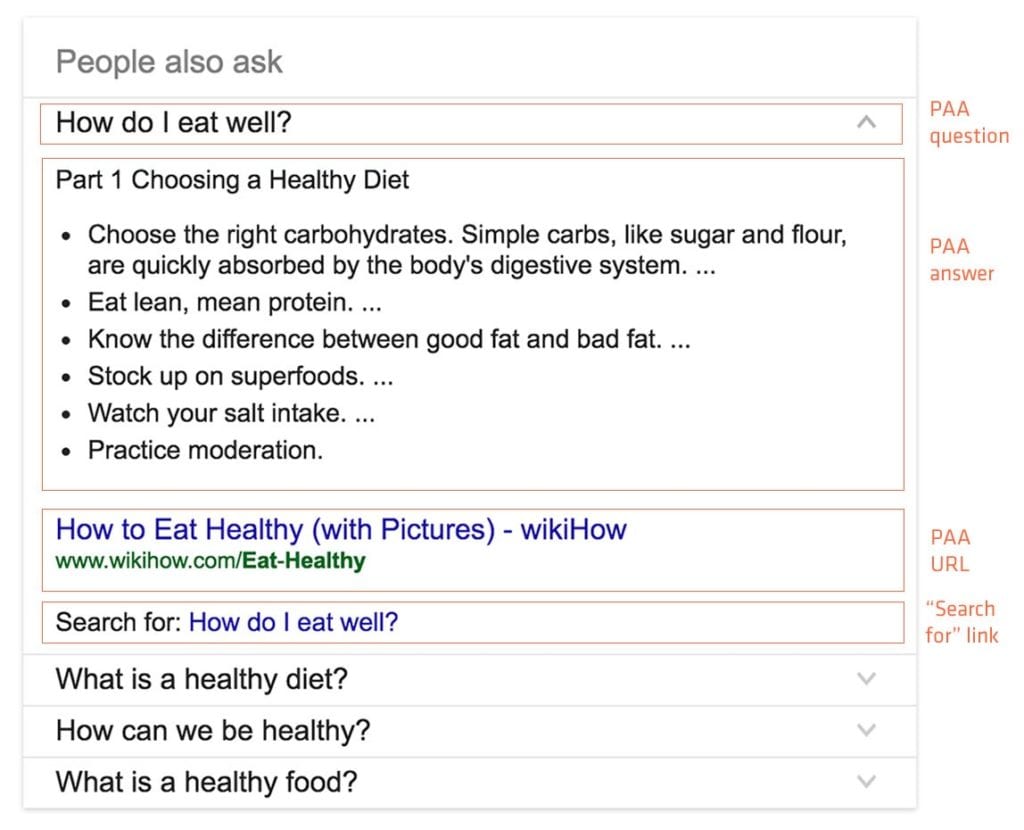This article was first published on July 15th, 2021, and was last updated October 2023.
As a business owner you are often bombarded with suggestions on how you should roll out your very own digital marketing campaign. Too often you may hear marketers offering specific tasks as being the absolute best for your time and money and that you should ignore everything else to only focus on their chosen avenue of expertise.
While this may work for some agencies, at Boostability we like to look at the whole picture. We understand that quality SEO takes time and expertise to roll out a successful campaign. One aspect of a successful organic campaign is proper keyword research.
To understand this task lets expand our knowledge on a few basic topics of search and draw attention to an important aspect of SEO. You’ve probably heard terms like “search query” and “search intent”. However, have you ever connected how these terms can equate to real business success? If you expand your understanding of query types the picture will begin to be clearer.
What is Search Intent?
Search intent refers to the outcome people hope to get from using a search engine. For example, people use search engines to answer questions, for research purposes, or to shop. The terms people use when searching define their intent.
For instance, searching for a “burger recipe” differs from searching for a “burger takeaway”, which again differs from “burger history”. Though all these searches revolve around the same subject (burgers), in each case, the user has a different intent.
Search engine algorithms try to provide relevant resources to users by assessing intent. Google and other search engines are consistently trying to improve understanding of search intent. Let me give you a recent example from Google’s Bert Update.
“BERT will help Search better understand one in 10 searches in the U.S. in English, and we’ll bring this to more languages and locales over time.” – Google Blog
That update had a huge impact on search results. The image below nicely illustrates the impacts of this Google update on search results.
Understanding the user’s search intent is crucial if you want to dominate the search rankings. So let’s look at how we can use search intent to help your brand gain conversions.
4 Types of Search Intent
There are four primary objectives behind every search made through a platform like Google. They are informational searches, commercial searches, transactional searches, and navigational searches.
Each objective aligns with a different stage of the marketing funnel. Each type of search intent has a different conversion probability.
1) Informational Intent
Informational search intent corresponds to the discovery stage, where the searcher is looking for information. Informational searches are often questions that can be simple and specific: “What is the temperature in New York?” They could also be a bit more complicated: “How does blockchain work?”
Not all informational searches are questions. Search queries like “HTML 5.0” or “Directions to the airport” have an informational intent, even though they are not posed as questions.
2) Navigational Intent
You do a navigational search when you are looking to access content on a website. Navigational searches are website-specific. For instance, “HubSpot login” is a navigational search.
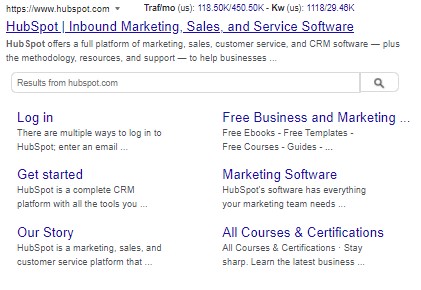
Sometimes, it is easier to search for content from Google than trying to find the content on a site. You have likely encountered this problem. For instance, you might have read a great article on a website and want to find that content again. If you used Google to do this, you did a navigational search.
3) Transactional Intent
Transactional searchers look for making a purchase which can be a product, service, or subscription. Transactional searches are the conversion point in the marketing funnel, where the user knows what they want and is ready to make a decision.
For instance, the search terms can take the form of “Shop Louis Vuitton bags” and “Vans high tops sale”. If you want to increase conversions from your product page or landing page, using different landing page best practices, you’d use keywords and provide content that matches search intent.
4) Commercial Intent
A commercial search is what you do before purchasing a product or service. Commercial search intent usually includes non-branded search terms such as “best web development company” and “Top Pizza Restaurant near me”.
Keywords vs Search Queries
Now that we are aware of these types of search queries we need to explore what this means for your business. Often you look to conduct research on what the most popular searches are and find simple terms that are one or two words. While these terms do get hundreds of thousands of hits each month, they probably don’t convert to revenue for your business as they are too broad. That’s why narrowing down your efforts to high-intent keywords and search queries is essential to long-term success.
You should expand your keyword intent research to include these in your strategy. Ask yourself, can I target these terms? Can I optimize for search intent? In the past, simple keywords were King of a simple search engine. But modern search engines, like Google, are getting smarter and more advanced all the time. A keyword is like the simplified version of a search query. You should see keywords as a byproduct of quality search query research.
How to Optimize Your Content for Search Intent
To improve your SEO performance, you need to optimize your content for search intent. Whether you want to start a blog or are looking to improve your current content, these tips will help you optimize your content for the SERPs.
1. Review the Ranking Content
Competition analysis is crucial to understand what people are searching for when conducting a search. Reviewing SERP results is straightforward. You should do the following:
- Open an incognito tab on your browser
- Search for “local search results checker”
- Conduct a search for a keyword in your geographic area
Alternatively, you can use SEO tools to review the search results.
Once you’ve searched for the term, you should review the ranking pieces of content. I recommend using a tool like Detailed, which is a free extension, to review headings used on the page. The handy Chrome extension also shares information like article length, and other info.
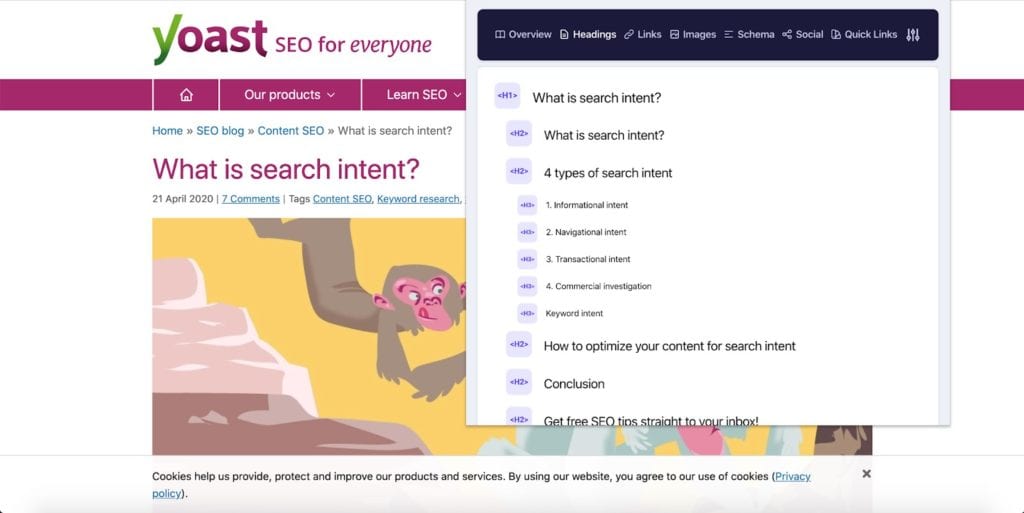
When reviewing the search results, check the article format. Though content takes many forms, most content marketers use the following content formats:
- “How to” guides
- Step-by-step guides
- List posts
- Comparisons
- Reviews
- Opinion pieces
Note down the similarities between the search results. For example, if all of the pages are “how to” guides, you should create a similar guide. Equally, if they have similar headings, you should include those headings in your content.
2. Review Related Searched
The next step of your analysis should be to look at the related searches features.
The “People also ask” (PAA) box in the SERPs as it tells you the questions searchers usually ask. To see more questions from this box, click on the caret for one of the relevant questions. Once you click on it, Google reveals more.
You can include these search terms if you want to create an ultimate guide targeting keywords. You’ll see bloggers like Adam Enfroy frequently take this approach when creating his roundup posts.
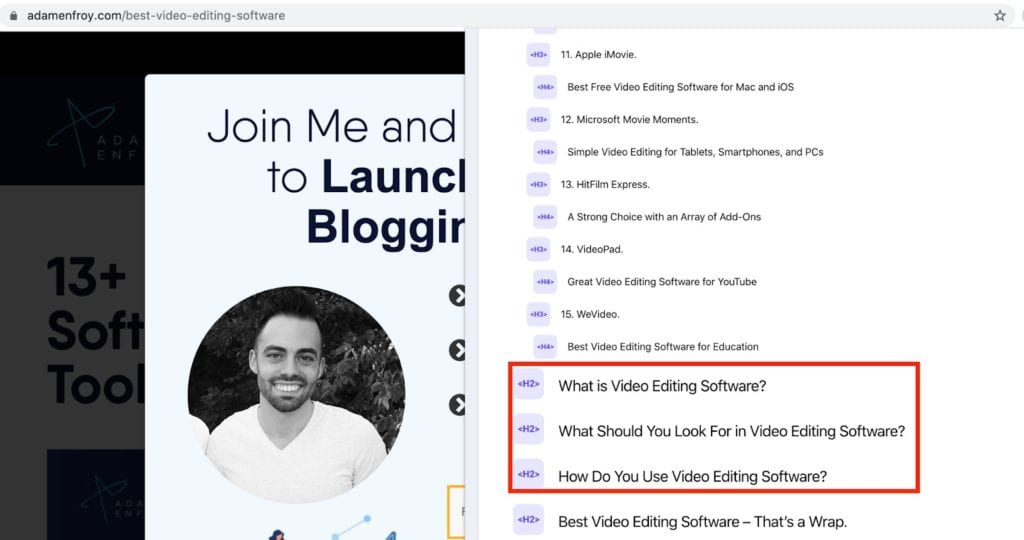
I do the same thing on the Diggity Marketing blog. It’s an effective strategy. These are all white hat SEO techniques that help you understand search intent.
3. Create Optimized Content
The final stage in the process is to create your SEO optimized content. You should create an article outline that will answer user search intent based on a review of the content that is already ranking in the SERPs. You will then need to imitate and improve on that content.
Creating content that fits search intent is a process that is continually evolving. At the moment, one emerging trend I’ve noticed is the increasing use of tools that try to reverse engineer the search results by identifying what topics you should include in your content.
The two market leaders in the sphere are Surfer SEO and Clearscope. Both tools use the Google Natural Language Processing API to analyze search results and pick out the important keywords that should be included in a piece of content. These tools then share a list of the relevant keywords to include.
Here’s an example from Clearscope.
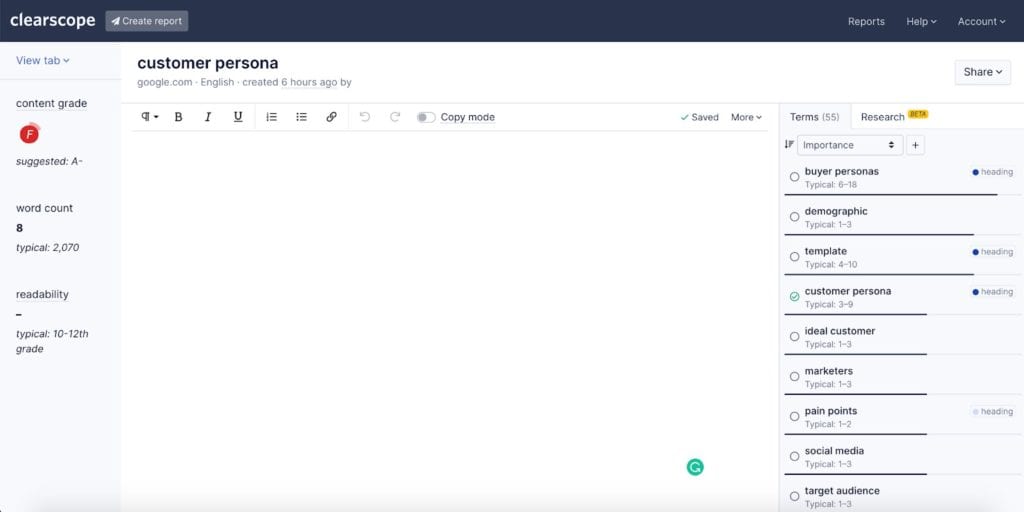
On the right side of the screen is a list of keywords that you should include in your article. You can even see what phrases to include in the headings.
Using tools like Clearscope will help you create SEO optimized content. If you’ve structured your content correctly, that article should fit user intent. The better you’re able to fill the needs of the person making a search. Ultimately, your ability to fill that need will play a huge role in where you appear in the search results.
Bottomline
Search intent is one of the most crucial ranking factors in SEO. To rank high in the SERPs, your content needs to align with search intent. This guide walked you through how to create content that fits the needs of your visitors.
Before optimizing or creating content, you need to understand the search intent. Start by reviewing the results that appear based on the region you are targeting. Review the content that appears in the SERPs, and the headings used on the page. That initial research should help you determine search intent and the content type you need to create. Finally, use a tool like Surfer or Clearscope to create your content.
Optimizing your content for specific search intent is difficult, but you need time and practice to get it right. However, once you get the hang of it, you can give users the content they need and increase your conversions in the process. If you ever need help, Boostability can help! Learn about our white label SEO services today!




